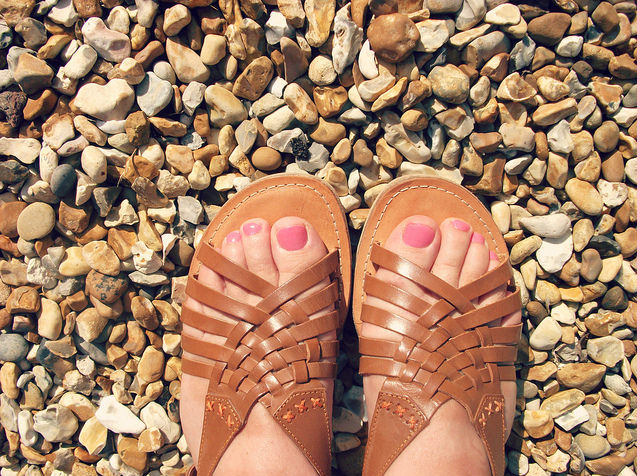
Healthy toes are happy toes!
While fairly common, ingrown toenails can be extremely painful.
Ingrown toenails (onychocryptosis) generally affect the big toe, and while they are most commonly caused by an injury, ill-fitting shoes, or improper foot care –almost anyone can get an ingrown toenail.
If you suspect that you have an ingrown toenail, it’s important to seek treatment as quickly as possible to help prevent infection. An ingrown toenail is a perfect location for bacteria to grow –since ingrown toenails are warm and moist –making the perfect breeding ground for bacteria. If left untreated, the ingrown toenail can become severely infected.
Symptoms
An ingrown toenail is caused when the sides of the nail start to grow into the surrounding skin. When this happens, you may notice that the skin around the nail becomes mildly red or inflamed. The area may also be sore, or tender when touched.
Treatment
Partial nail avulsion involves trimming part of the toenail. This is the most common procedure for ingrown toenails. Local anesthetic is used to numb the area and the edge of the toenail is trimmed. A chemical may be applied to the infected area to help prevent the nail from growing back improperly.
In more severe cases, a total nail avulsion may be necessary. While less common, this procedure involves removing the entire nail, and may be necessary in cases where the nail is thick and pressing into the surrounding skin.
If there is swelling, pain or discharge –there is most likely an infection, and it is especially important to seek treatment right away. Your podiatrist will be able to remove the infected nail and skin and monitor the area to ensure that the nail grows properly. In some cases, antibiotics may be prescribed.
Prevention
The best cure for ingrown toenails is prevention. Here are some measures you can take to help reduce the chances of a toenail becoming ingrown.
• Wear proper fitting footwear with enough room at the toes
• Trim your nails straight across to prevent them from growing into the skin
• Monitor your nails after a trauma or sports related injury
• Keep your feet dry: sweaty, damp feet cause the skin to soften making it easier for the nail to pierce the skin
For more information on foot care in Houston, or to learn more about treatment options for ingrown toenails contact Dr Lamarra of Shepherd Square Podiatry today.
Image: Heather
Tags: Foot Care, Prevention, Toenail
